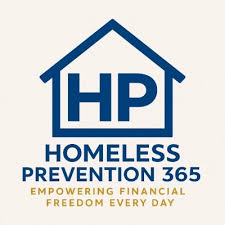Understanding Resources for Housing Stability
- Dwaine Graham

- May 5
- 4 min read
Housing stability is a vital aspect of individual and community well-being. Without stable housing, individuals and families face numerous challenges. They may struggle to find jobs, maintain health, or build relationships. Stability in housing contributes to a more resilient society. This blog post will explore resources available for housing stability, provide insight into various programs, and offer actionable tips to help individuals navigate their housing situations.
Exploring Housing Stability
Housing stability is about more than just having a roof over your head. It encompasses the ability to maintain that roof over time. Factors contributing to housing instability include economic challenges, health issues, and housing market fluctuations. According to a recent report, approximately 580,000 individuals experience homelessness on any given night in the U.S. alone. Additionally, many more face the risk of becoming homeless due to unaffordable rent and insufficient wages.

To achieve housing stability, various resources are essential. These resources include government programs, non-profit organizations, and community initiatives designed to assist those in need.
Importance of Community Support Services
Community support services play a crucial role in assisting individuals in finding and maintaining stable housing. These services can range from housing counseling to financial assistance programs. Many local organizations focus on preventing homelessness and supporting individuals at risk of losing their homes.
One example is the Family Promise program, which helps families facing homelessness by providing temporary shelter, meals, and case management. Families work on specific goals related to housing stability, often leading to permanent homes.
There are also transitional housing programs that offer a more extended stay for individuals who need time to stabilize their lives before moving into permanent housing. These programs often provide essential services such as job training and financial literacy workshops.

Understanding the options available within your community can lead to better outcomes when facing housing challenges. It is crucial to research and connect with local organizations and shelters to understand their services.
What is the Wisconsin Homeless Prevention Program?
The Wisconsin Homeless Prevention Program (HPP) is one example of a state initiative aimed at providing support to individuals and families at risk of homelessness. The program focuses on preventing homelessness through financial assistance for rent or utility payments, case management, and connections to community resources.
Participants in the program must meet specific criteria, including financial need and residency requirements. Once accepted, they work closely with case managers to identify barriers to housing stability. The program aims to keep families in their homes and prevent them from experiencing the trauma of homelessness.
Beneficiaries of the HPP have shared numerous success stories. Many have avoided eviction, secured stable employment, and transitioned to permanent housing. Statistics report that communities with robust prevention programs experience a decrease in homelessness rates.

Government Programs Supporting Housing Stability
Government programs also provide invaluable resources for individuals seeking housing stability. In the U.S., several federal initiatives help combat homelessness and support stable housing.
Section 8 Housing Choice Voucher Program: This program allows low-income individuals and families to rent from private landlords while receiving a subsidy that covers a portion of the rent.
Emergency Solutions Grant (ESG): This funding supports local programs that offer emergency shelter, rapid re-housing, and prevention services for those experiencing homelessness or at risk of becoming homeless.
Continuum of Care (CoC) Program: The CoC program is designed to promote community-wide commitment to the goal of ending homelessness. This program provides funding for local programs to quickly re-house homeless individuals and families.
These government programs often work in collaboration with local organizations and agencies to ensure resources are used effectively. Understanding your eligibility and how to access these programs can make a significant impact on your housing stability.
Actionable Steps for Individuals Facing Housing Challenges
If you or someone you know is struggling with housing stability, there are actionable steps to take that can help mitigate the situation. Here are some recommendations:
Seek Immediate Assistance: If you are at risk of losing your home, contact local shelters or support organizations immediately. Many cities have resources that can assist with emergency housing or rental assistance.
Explore Financial Assistance Programs: Look into state or local financial aid programs aimed at preventing eviction. These programs can provide short-term relief to help you stay in your home while you seek longer-term solutions.
Connect with Housing Counselors: HUD-approved housing counselors can help you understand your options and navigate the local housing market. They can provide information on affordable housing and homestead programs.
Utilize Local Non-profits: Many non-profit organizations offer a range of services from eviction prevention to financial literacy. Research organizations in your area, such as the United Way, and see what resources they offer.
Focus on Employment and Income Resources: If lack of income is contributing to housing instability, look for job training programs and work placement services. Many organizations offer resources to help individuals gain employment and increase their income.
Stay Informed: Follow news about local housing policies and programs. Many communities have initiatives aimed at supporting housing stability. Staying informed can provide you with opportunities and resources you may not have been aware of.
By taking these actionable steps, individuals can work toward improving their housing stability and creating a more secure living situation.
Community Initiatives and Future Directions
Additionally, community initiatives play a significant role in addressing housing stability. Collaborative projects between local governments, non-profits, and residents can lead to innovative solutions. Many cities are beginning to implement programs focused on affordable housing development, rent control, and supportive housing.
Engagement in these initiatives is crucial. Involving community members in planning and advocacy efforts can lead to more effective solutions that reflect the needs of those directly affected by housing instability. For instance, residents can share their experiences in local meetings or forums, informing policymakers about pressing issues.
As society continues to confront housing stability challenges, organizations like homeless prevention 365 play an integral role in connecting individuals with resources and support. Promoting awareness and understanding of available options will help build stronger, more resilient communities.

In summary, understanding the resources available for housing stability is vital in navigating complex situations. By leveraging community support, government programs, and individual action, it is possible to create and maintain stable housing. Whether you are personally affected or looking to assist others, the journey to housing stability starts with understanding the available resources and options.






Comments